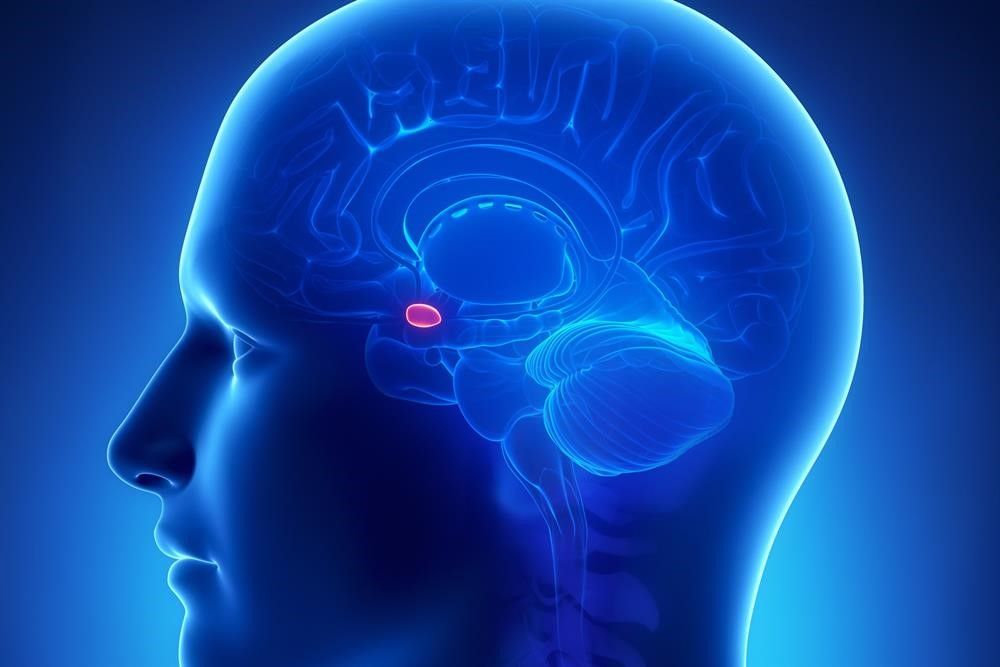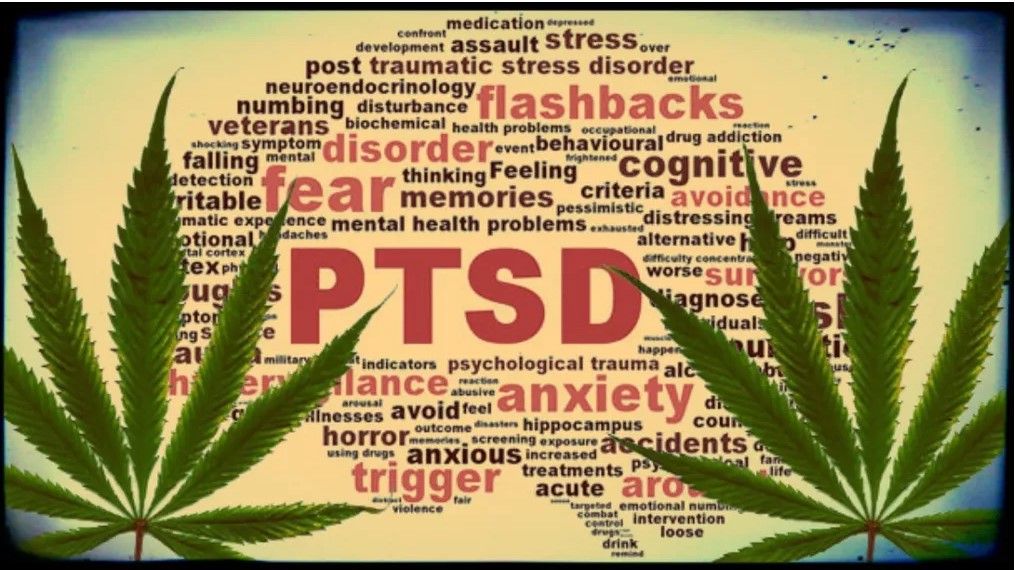Shell shock is a term first coined over a century ago during World War I to describe combat-exposed soldiers’ symptoms – what we now refer to as post-traumatic stress disorder (PTSD)…
PTSD (Post-traumatic Stress Disorder) is a psychiatric condition likened to surviving or witnessing a traumatic life event. PTSD affects around one in ten Australians at some point in their lives, causing agitation, flashbacks, impaired concentration and memory, insomnia and nightmares. These symptoms can increase the risk of substance abuse and dependence, depression and even suicide.
PTSD can occur in anyone following a traumatic event. Symptoms will vary among affected individuals, but they can be debilitating and severely impact quality of life. People with PTSD may re-experience the trauma through distressing recollections of the event. They may also have difficulty sleeping or concentrating, become easily angered or irritated; or feel emotionally numb.
Recent research shows that THC use by people living with PTSD may reduce their likelihood of depression and suicide.
Many patients struggle to find adequate symptom relief from conventional treatments for PTSD including anti-depressant or anti-psychotic medications and psychological treatments such as trauma-focused cognitive behavioural therapies.
Unsurprisingly, many turn to alternative ways of coping – such as medicinal cannabis use. This is especially evident in the dramatic rise in numbers of war veterans receiving government reimbursement for THC, with PTSD as a common reason for its use.
How THC works in the Body
Substance use, including THC (medicinal cannabis) is common among trauma survivors. It’s easy to write-off the drug as just a tool to briefly escape negative feelings, at the risk of worsening longer-term symptoms. However, the relationship between THC and PTSD is more complex than it first appears.
Our bodies naturally produce molecules called endogenous cannabinoids that fit into special cannabinoid receptors throughout the brain and body. This endocannabinoid system is involved in stabilising bodily processes, including regulating many functions of the brain that tend to be affected after traumatic experiences, such as fear, memory and sleep.
Certain components of the cannabis plant, including the well-known molecule THC (tetrahydrocannabinol – the component of cannabis that produces the high) and CBD; are also cannabinoids because of their structural similarity to endogenous cannabinoids. Even though THC and CBD are not naturally produced in our bodies, they can interact with the endocannabinoid system to influence a number of biological processes.
Research is still uncovering if and how cannabis works within the body to affect the course of PTSD. Brain imaging research suggests that patients with PTSD have an abundance of cannabinoid receptors but produce few endogenous cannabinoids to lock into them, meaning that supplementing the body with plant-based cannabinoids like THC might help some brain processes function as normal.
Much of the existing evidence for cannabis as a PTSD treatment comes from patient reports of success.
A promising new sign…
PTSD sufferers are more likely to experience depression and suicidal ideation. However, research suggests that these indicators of mental health were improved when they were engaging in THC cannabis use.
Current studies have a number of limitations that prevent us from being able to understand whether THC is what’s causing the reduced association between PTSD, depression and suicide.
For example, current data captures information covering participants’ experiences from the previous year, meaning we can’t actually decipher what came first… the cannabis use, the PTSD or the mental illness. Future research required detailed information about how participants use THC, such as dosage, how often they use it or how they consumed it. These details will be crucial to future research in this area.
To date, researchers have uncovered a promising new sign, with the ability to describe patterns of PTSD symptoms and THC use in a large sample that’s considered representative of the population.
There are a few questions which the psychiatric research world is very interested in answering with respect to PTSD:
A. what’s different in the brain of someone who has PTSD Vs someone who doesn’t?
B. why do some people develop PTSD and others don’t?
What scientists DON’T yet understand is that why some people are more vulnerable, and there is a lot of research being directed into these questions, to try and ascertain if there is some kind of biological signal that can be extracted from a person’s DNA; or from their blood; or some other measurement that will predict if they experience traumatic stress, they have a good chance of getting PTSD.
What scientists DO know is what happens in the brain when someone suffers PTSD.

Risk Factors
People of all ages can suffer with PTSD, however some factors may make you more susceptible to developing the disorder after a traumatic event, such as:
· Experiencing intense or long-lasting trauma
· Having experienced other trauma earlier in life, such as childhood abuse
· Having a job that increases your risk of being exposed to traumatic events, such as military personnel and first responders
· Having other mental health problems such as anxiety or depression
· Having problems with substance misuse such as excess drinking or drug use
· Lacing a good support system of family and friends
· Having blood relatives with mental health problems including anxiety or depression
Kinds of traumatic events
The most common events leading to the development of PTSD include:
· Combat exposure
· Childhood physical abuse
· Sexual violence
· Physical assault
· Being threatened with a weapon
· An accident
Many other traumatic events can also lead to PTSD, such as fire, natural disaster, mugging, robbery, vehicle crash, torture, kidnapping, life-threatening medical diagnosis, terrorist attack, and any extreme or life-threating event.
Time will tell what effects a world-wide pandemic such as COVID-19 will have on those susceptible to stress and anxiety.
Prevention
After surviving a traumatic event, many people have PTSD-like symptoms at first, such as being unable to stop thinking about what’s happened. Fear, anxiety, anger, depression, guilt – all are common reactions to trauma. However, the majority of people exposed to trauma do not develop long-term post traumatic stress disorder. Getting help and support may prevent normal stress reactions from getting worse and developing into PTSD. This may mean turning to family and friends who will listen and offer comfort. It may mean seeking out a mental health professional for a brief course of therapy. Some people may also find it helpful to turn to their faith community. Support from others may help prevent you from turning to unhealthy coping methods such as misuse of alcohol or drugs.
Most importantly, the effects of THC for PTSD have been backed by recent studies showing the compound to have mitigating components at the biochemical level…
At iCannabis we are focused on bringing the purest medical cannabis to Australian patients and their families.
We are a group who specialise in educating and helping Australian patients gain access to Cannabis for Medical purposes through education and real-life experiences with the healing powers of this plant.
Once you discover the documented benefits tens of thousands of patients around the world have received from the medicine, you too will realise how this can potentially change and improve the lives of you and your family.
The positive impact this plant has already had on the quality of life for patients and their families is nothing short of miraculous.
At iCannabis we are committed to establishing an Australian medical cannabis community comprised of passionate and caring people, focused on the highest quality organic medicine made with love and integrity.
If you need any advice or help with THC PTSD care, please contact us. We try to answer all emails within 24 hours and are happy to help and advise on all aspects of THC treatments in complete confidence.

